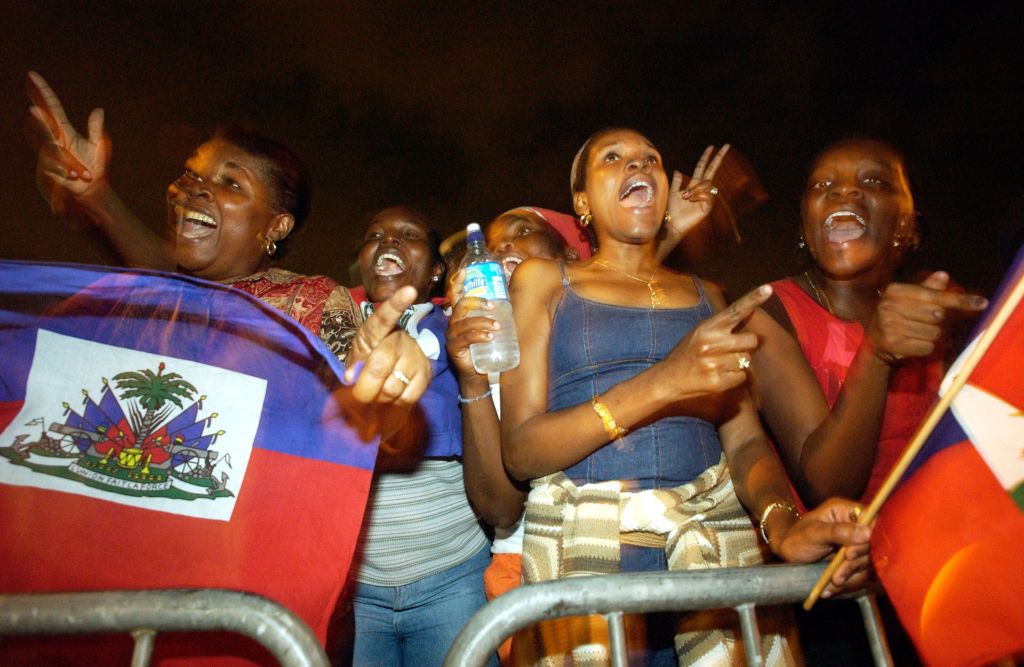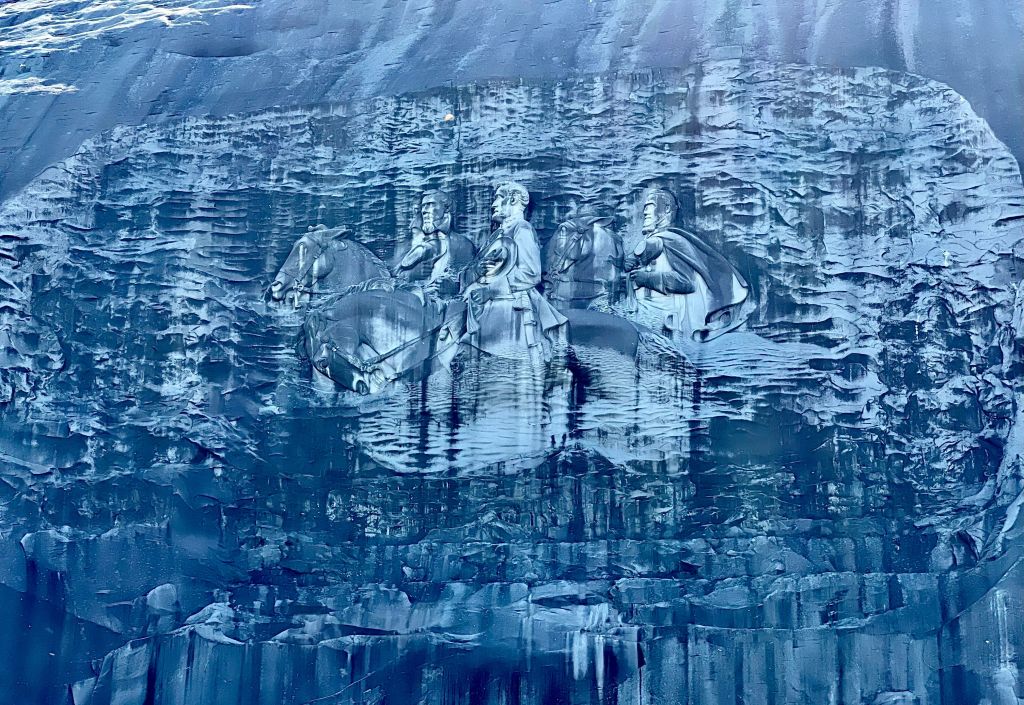Observing Popular Haitian American Allies: A Bridge Over Troubled Borders
A Bridge Over Troubled Borders

Source: Getty Images / Getty
It’s been a week since the horrific images of the U.S. Border Patrol’s treatment of Haitian asylum seekers circulated in the media. During that time, I couldn’t help but notice the unrelated coincidence of many popular Haitian Americans making headlines as trending topics.
Twenty years ago, if the average citizen were asked to name three Haitian celebrities, they’d likely give the individual names of The Fugees (note: Lauryn Hill is not Haitian). If you asked the same question today, you would probably get a variation of the same answer, just more name-dropping of uncertainty.
MORE: Dictatorship Masked As Democracy: A Timeline Of The 1915 U.S Invasion And Occupation Of Haiti
A Google search of famous Haitian Americans will produce a relatively short list with mixed results depending on your keywords. I noticed that missing from most results was tennis star Naomi Osaka. Yet NBA player Blake Griffin was always listed. Rapper Tony Yayo was prominently featured but despite always waving the Haitian flag among scantily-clad women, DJ Whoo Kid rarely appeared. I learned sultry singer Maxwell and Gym Class Hero Travie McCoy each have one Haitian parent. Of course, there’s Jean-Michel Basquiat, whose influential art and hairstyle seem to get more popular by the day. As for the person most synonymous with the word Haitian, that honor unsurprisingly goes to Wyclef Jean.
In 2010, after the major earthquake, Wyclef made a serious attempt to run for president of Haiti. Unfortunately, those plans were stifled by the country’s electoral council because of his lack of residency.
Last week, one month after the most recent earthquake, he reunited with The Fugees in concert for the first time in 15 years. According to Billboard Magazine, at the show, Wyclef did a freestyle addressing the “troubling situation” at the border.
During an episode of “The Real,” Haitian born actress Garcelle Beauvais (also a top result) emotionally spoke about the border mistreatment while integrating her personal journey as a little girl who couldn’t speak English when her family came to America – a story very relatable to many first-generation immigrants.
Chart-topping singer Jason Derulo was born in Florida right before the Refugee Crisis of the ’90s when thousands of migrants fled by makeshift boats after the military coup of Haitian President Jean-Bertrand Aristede. While Derulo has never shied from promoting his heritage in the past, his social media posts last week focused on a TikTok milestone and most of the news coverage he received was about him and the mother of his newborn child breaking up.
Like Derulo, rapper Kodak Black is also a native of Florida, where the negative stigma of being Haitian is well known. Most in the community will describe it as third-class citizenship. However, many will also chuckle in cultural honesty when crediting The Fugees for helping to relieve a burden that finally allowed for ensconced pride in their own homeland.
Kodak Black was born in 1997 at the peak of The Fugees’ success. Earlier this year, he released an album coinciding with Haitian Flag Day. Soon after, he posted a video apparently throwing $100K in the ocean. The same water some of his ancestors died in just a few years before his birth. Earlier this month, the rapper Future (also of Haitian descent) hosted a benefit concert in Miami that included a performance by Kodak wherev100% of the proceeds went to restorative aid.
Ironically, that concert was co-hosted by media strategist Karen Civil, whose allegedly questionable business practices recently got dragged through the social media mud. Just over a week ago, the ruling of a defamation lawsuit between her and media personality Jessie Woo (real name Jessica Juste) rocked the Richter Scale and Black Twitter timelines are still feeling aftershocks.
Civil and Woo, who are both Haitian, had a public feud that led to litigation where the court ruled in favor of Woo. The decision broke the levees for what felt like a class action in the court of public opinion – or, in this case, Clubhouse.
Many notables took to various public forums to air out their grievances on Ms. Civil. As high-profile names like Meek Mill, Cam’ron, Joyner Lucas and Jason Lee dominated airwaves of allegations, it was the testimonial from a non-profit organizer that made Ms. Civil devote most of her formalized damage control. While receipts from rappers and gossip sites get filed under the entertainment shiesty-ness, an account by someone not in the industry can be more harmful. It’s easier to spin an interpretation of dishonor among thieves than it is a crime against humanity, especially if it involves children.
Melissah Prato is a Haitian-American who works with an all-volunteer charity called Sow a Seed. In a recent Twitter thread, she detailed a start-to-finish experience of recruiting Civil as an ambassador to the organization, the termination of said relationship and all the messiness that transpired in between.
The full story seems like a believable accusation but I’m choosing not to further discuss. There are many lessons in its public exposure because it metaphors how Haiti receives “help.” While I believe there are circumstances like these where we have the right to pass judgment, for me, there is nothing righteous in writing standardized purity tests of pride, honor or altruistic intent for Karen Civil or any other aforementioned Haitian American.
I wonder if Haitians even know these people. I mean, everyone says they mean well, right? To them, is there a difference between Jessie Woo, Karen Civil or the Red Cross? Future, Russell Wilson or Mitch Albom? If they read this, how would they feel about me framing their plight around the concept of celebrities who have the privilege of pre-existing hyphens in their nationality status? If they make it to America and try to help loved ones they left behind, will they be forced to assimilate into a vanity fair of hashtags, self-branding, benefit concerts and photo-ops of goodwill?
Their arrival at the Texas border has nothing to do with the lack of charitable events done in their name. Their migration didn’t start after the mercenary execution of President Jovenel Moïse in July or the earthquake in August. They will tell you they left their homeland long before that. The refuge, where they mainly stationed in Chile and Brazil, occurred after the earthquake in 2010.
So when they received “fake news” that U.S. borders were open, the misinformation had to come from somewhere – and I doubt it was George Soros. Through the Haitian lens of time and U.S. presidential terms, is there really any difference between Trump, Biden or Obama? When crossing the Rio Grande River from Mexico into Del Rio, Texas, last week, unharmed and toting food in Styrofoam containers to feed families who were in plain sight, not hiding from authorities, is there no UN law that protects their humanity?
Whips? Really? Not surprisingly occurring in the home state of Juneteenth.
Still, however disturbing the imagery of Haitian migrants getting treated like cattle and slaves, we are triggered through a narrow American scope. Their presence transcends a boat stigma and predates natural disasters. This is about something man-made since their independence in 1804. This is perennial punishment for that victory. It’s not about a few Texas Rangers living out time period fantasies. It’s about all the imperial powers complicit in destabilizing Haiti and enforcing the global borders of North America, South America and France. Not to mention one border in particular that unites all these territories in history – the Dominican Republic.
Before that border divided the respective colonial rule of France and Spain, the land (then known as Hispaniola with an indigenous Taino population) was the first stop for the Trans-Atlantic Slave Trade that made all these current countries of non-entry very rich. The fact that today’s Haitian migration mirrors those routes – those roots – should send a chill through every Black person’s bones.
So with the weight of all that history, I don’t know how Haitians feel about their American counterparts or how they see themselves shaping the future of both countries. The question is: If Wyclef Jean became president of Haiti or the United States, would anything change?
SEE ALSO:
Data Shows U.S. Grants Asylum To Haitians Less Than Any Other Nationality
Does The U.S. Have A Legal Obligation To Process Asylum Seekers? It’s Complicated



















